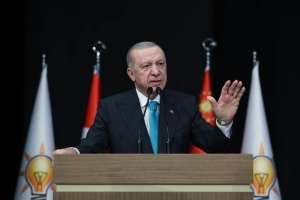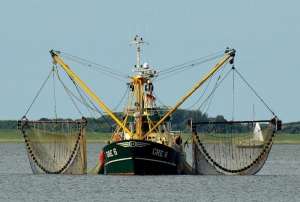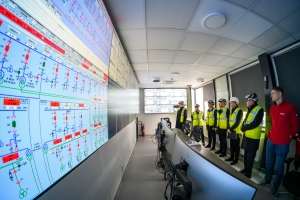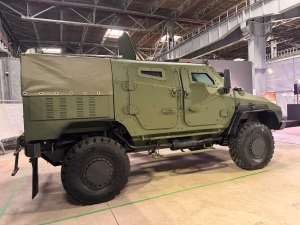Reporter: Will Romania be a member of the Asian Infrastructure Investment Bank (AIIB)?
Doru Costea: According to our information, the option is in the process of being reviewed. It is important to remember that the bylaws of the AIIB stipulate that the open character of the institution, means that Romania can become a member of the bank when we find that this decision meets our interests.
Reporter: The Romanian authorities are saying that the Chinese investments in Romania will increase in the following years. So far, almost nothing has materialized, as the projects have been postponed or even canceled. What are the causes of this slowness in the expansion of Chinese investments in Romania, considering that Romania has a tradition in cooperating with the People's Republic of China?
Doru Costea: Over the last 2-3 years, the Romanian-Chinese cooperation has entered a new stage, whose traits can be boiled down as follows: the unprecedented intensification of the high-level dialogue - an improvement supported by the four meetings of the heads of the Romanian and Chinese government within approximately 18 months, at least 20 ministry level meetings and many government level contacts. Seven visits were made in the first semester of this year alone, in both directions, by the coordinators of several economic sectors - economics, environment, social affairs, education, tourism. The talks have focused on concrete actions in the sectors in question and have led, among other things, to the boosting of the negotiations for the completion or the signing of documents that support the exports of food and agricultural products to the Chinese market or the creation of the roadmap for the future cooperation in other areas of interest. We have also launched the procedures for the reopening in Beijing of the Department for Promoting Tourism.
The investment projects that you are referring to concern, overall, complex objectives, of large valuation and scope. The desire to see them completed as soon as possible is natural, but we have to be realistic and accept that a project of several hundred million Euros involves many aspects that need to be agreed upon, such as the financing method and terms, managing the environmental impact, the efficiency of the investment, the selection of the companies that will develop the project, to mention just a few. In this context, it is also worth mentioning the category of investments that is being considered: Chinese capital is found in Europe mostly through its involvement in mergers and acquisitions. Our projects are usually in the "green field" or "brown field" category; as a consequence, the two parties are also involved in a mutual process of "learning" the rules and the procedures that need to be complied with in these cases.
Reporter: How is Romania viewed in China in the current global context, given that Romania is known to be a US partner, whereas China is a friend of the Russian Federation?
Doru Costea: The Romanian-Chinese relations follow a different logic than the contrast-based, or dichotomic one, which your question is suggesting ... Romania is perceived in China as a reliable partner on a bilateral level and a member state of the European Union, which plays a significant part in the overall Chinese-European relations. Moreover, recently, at the end of June 2015, the 17th EU-Chine summit was held, which ended with very important results when it comes to the materialization of the Agenda 2020 for strategic cooperation between the two parties, and in September 2015 the first official state visit of the Chinese president in the US is scheduled to take place.
Reporter: What are the most important investment projects in Romania which China intends to get involved in?
Doru Costea: The modernization of the thermoenergy unit of Rovinari, Units 3 and 4 of the Cernavodă nuclear plant, the hydroelectric plant of Tarniţa are projects which are relevant in relation to what I was saying earlier, at least from the point of view of the size of the investments, whose upper limit is almost 1 billion Euros.
Reporter: What do Chinese companies need to develop big projects in Romania? Specifically, what does Romania need to do to absorb the available Chinese capital available in our region?
Doru Costea: Any investment cooperation must meet certain elementary conditions, which everyone is aware of: the projects must be of interest to both parties; the beneficiary's proposal, as well as the offer of the investor, should be clear and convincing, and the benefits should be mutual. Reviewing the progress of the Romanian-Chinese talks on the issue of investment cooperation shows that during the period that we talked about, our messages have focused on a limited number of projects, but which are of particular interest to us; the reactions of the Chinese partners have also proved that our proposals have been attractive. From now on, both parties must act based on what can be boiled down to "The Four C": steadiness; consistency; coherence; creativity".
Reporter: What is the status of the direct flight between Bucharest and Beijing?
Doru Costea: The relevant documents have been signed, the operating terms have been agreed upon ... There are certain steps to decide.
Reporter: What are the areas of interest for the Chinese part? What are the most important Chinese investments in Romania and what is their value?
Doru Costea: Like I've said earlier, the successful cooperation in the investment field is possible when the involved parties find that there are shared interests, which justify the allocation of the necessary resources. The Romanian-Chinese dialogue has uncovered areas such as conventional and unconventional energy; infrastructure, which has clearer prospects once the "master-plan" for it has been adopted; IT and others.
I repeat, it is a new stage in the investment cooperation: Chinese investments in Romania currently amount to at most half a billion dollars, while we are already now discussing projects such as the one of Rovinari of almost one billion dollars, and thus we are talking about a higher level of bilateral cooperation.



























































